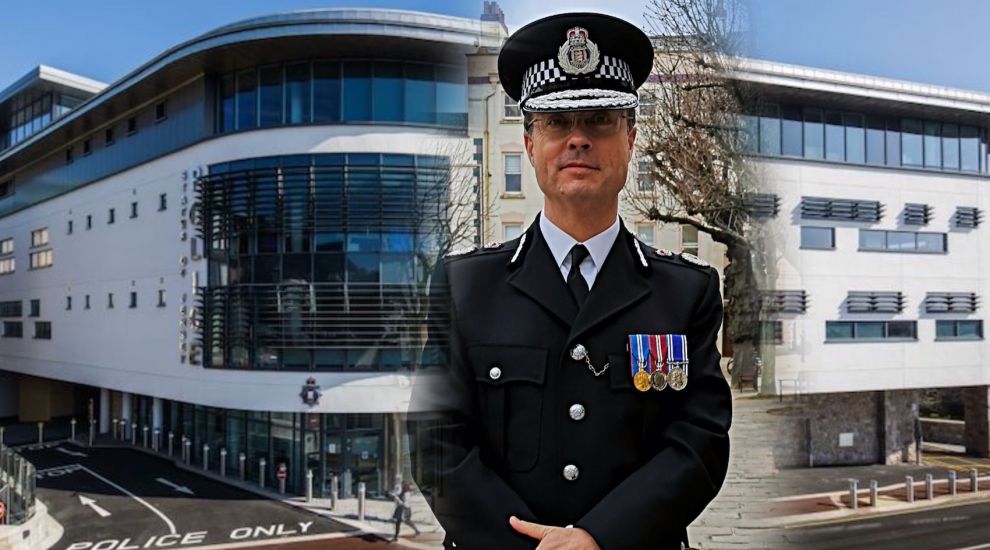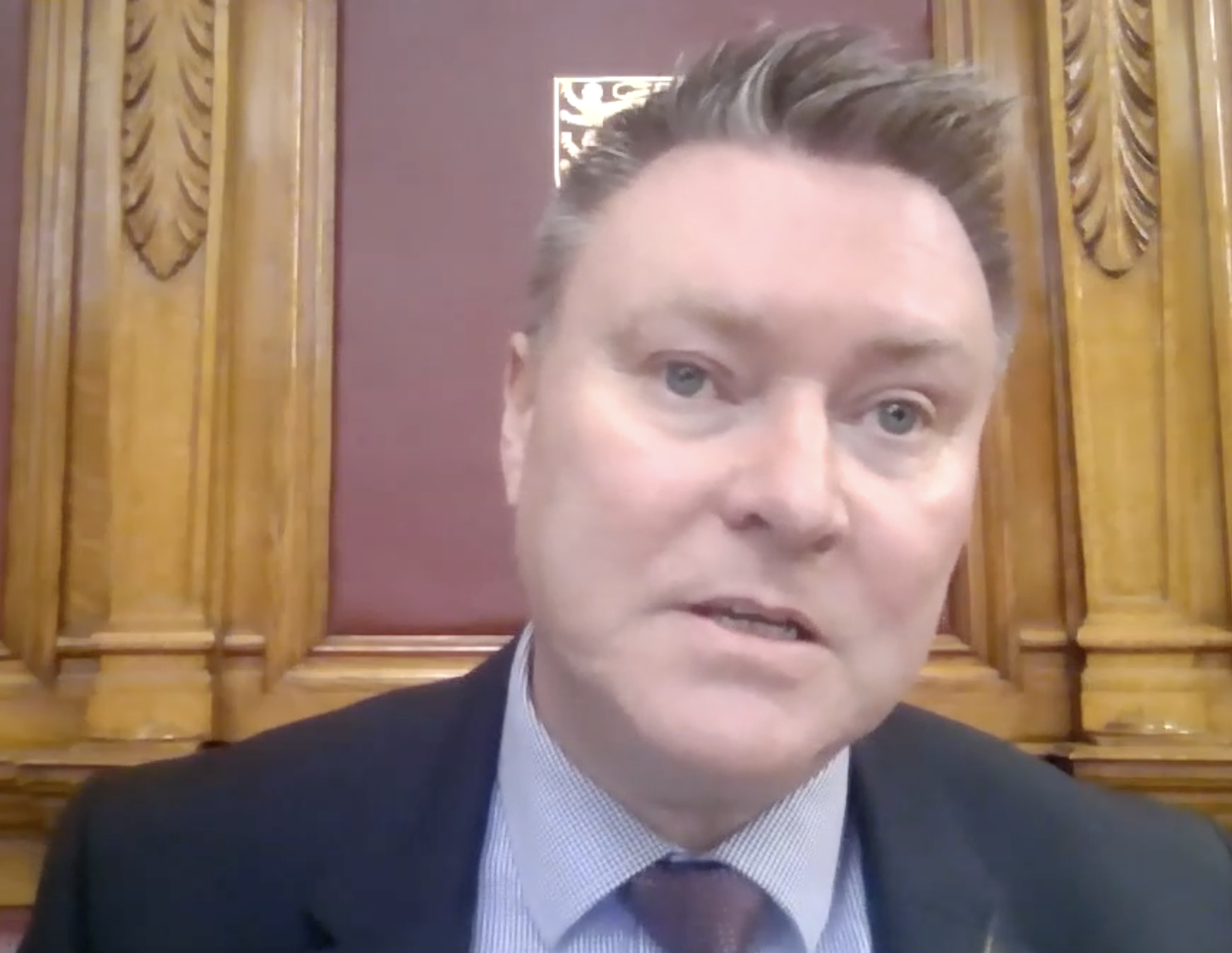


Islanders' safety will not be compromised as a result of the Government slashing the Police’s budget by nearly £840,000, the Force's head has insisted.
Police Chief Robin Smith assured a Scrutiny Panel yesterday that, while there may be a wider staff "impact", officer numbers will remain at 215 with no plans to make any redundant.
News of the planned cut for 2022 to 2023 had been met with alarm by the States of Jersey Police Association, who expressed “grave concerns” earlier this month about the potential repercussions for the public.
They noted that, if divided by a £51,000 salary (approximate wage of an officer having passed their probationary period), £800,000 would equate to 15.6 police officers for one year.
"This level of resilience would provide more police presence on the streets of St. Helier and within the parish communities, reducing crime whilst increasing faith and reassurance for the public," President Rob McCallum explained in a letter to a panel of politicians investigating the budget cuts.
"It is acknowledged that the so-called cost savings are being split into staff and non-staff categories with approximately £350,000 in staff savings and whilst this will admittedly result in a smaller impact on staff numbers than the aforementioned assertion, it will result in a significant impact on the non-staff budget which equates to less than 10% of our annual budget. Inevitably, this will be hard-felt in key areas such as the training and development of our staff."
CLICK TO ENLARGE: The letter from the Police Association.
But, appearing before the Home Affairs review board yesterday, Police Chief Robin Smith maintained that staff numbers would be maintained.
Addressing the staff savings the Association noted, Mr Smith told the Children, Education and Home Affairs Scrutiny Panel that the staff cuts mentioned were not officers, but rather those who had other roles within the police.
He further said that no redundancies had or would be made, with the Police instead cutting roles and freezing vacancies that had been identified for recruitment in a staff review, but had not yet been filled.
Speaking about the order to make 3% of efficiencies from Government, Mr Smith said: "The timing was a challenge in that we were agreed on what the staff review would look like, and just as we were about to start to recruit to new posts recruit."
However, he said that just as they were looking to recruit, they were "advised by the Government to find 3%" in efficiencies.
"It was bad timing because we were about to say 'right - we're ready, we're finished, we're recruiting," he remarked.
But, he continued, "it was good timing insomuch that we hadn't already recruited," as, if they had, they would have had "a very difficult position to find a 3%."

Pictured: Chair of the Scrutiny panel, Deputy Rob Ward, asked whether the sudden shift from the staff review to making 3% efficiencies could create problems with "morale" amongst staff.
Concerns were also raised by the panel over a line in the Government Plan about "enhanced responsibilities" for those working for the police, asking whether that meant staff would have to take on more work left from the vacancies.
In response, Mr Smith acknowledged that there would be a change, saying that "there's an inevitability if we take money out, either you stop or you find a different way of doing it" and that "sometimes work people might have to work harder or differently."
Mr Smith also assured the panel that it was a coincidence that the efficiencies had been found shortly after the separate review, after Panel Chair Rob Ward asked him if he could understand how such a "last-minute" shift could hit morale.
"Our police staff are a third of our organisation and a crucial third. And I don't mean that in a remotely patronising way - we can't operate without them," he said.
"But in many ways there are few other places for me to go. So it is entirely coincidental, the timing - the police staff review started at the beginning of this year, and the 3% request from Government was not known at that stage, so I can reassure you on that."
Of the £846,000, he said that approximately £247,000 is to be cut in non-staff additional costs, such as "meals as a result of staying on duty for extended periods of time... stationary and postage, training including conferences."
In regards to this training, he mentioned how the force trained around 20 prospective detectives, saying "we trained them in the island, so we brought the trainers to us - that was two trainers for two weeks providing training to approximately 20 staff."
"Approximate figures are that that would cost around £80,000 to send those officers across, out of island to other places in the UK."
"The actual cost was £20,000... what covid has done is allowed us to look at how we can better deliver the effect - in other words, bringing training to us."
Mr Smith also addressed the Association's comments that the force "cannot afford to make any more cuts without putting the safety and well-being of police officers at risk and therefore as a consequence, members of the public."
On this, Mr Smith said: "I disagree with their statement but I understand why they would make it."
He continued: "The fact that I have insisted that we are going to strive maintain the 215 number, that's the measure I use to keeping islanders safe, the 215 police officer numbers. So I understand why they make it - it's my judgement that we will keep islanders safe."
Comments
Comments on this story express the views of the commentator only, not Bailiwick Publishing. We are unable to guarantee the accuracy of any of those comments.